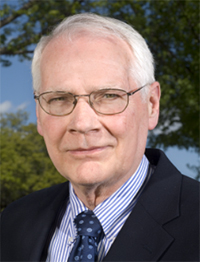
Ron Manderscheid, PhD
Executive Director, National Association of County Behavioral Health & Developmental Disability Directors and National Association for Rural Mental Health
Health strategies in the epilepsy field offer ideas for addressing mental health and substance use disorders.
The epilepsy field is much like the mental health and substance use field: it is subjected to pervasive stigma; hampered by fear; constrained by lack of available information for consumers to choose needed treatments; unconnected with mainstream health; yet, at the same time, aided by family members who desperately desire to help; supported by a national movement; undergirded by an emerging infrastructure; and buoyed up by great passion and energy. Thus, our epilepsy colleagues really are our brothers and sisters in spirit and in fact!
That is why I was so delighted to be invited to participate in the annual Epilepsy Foundation Skill Building Institute held in Columbus, Ohio, on March 19 and 20. The skills being honed at this national meeting directly align with the skills we need to develop for our mental health and substance use field.
First, here are some essential facts. Epilepsy occurs in about 1% of the US population, or about 3.4 million persons. For about one-fourth to one-half of these persons, it co-occurs with depression. Causes can include genetic factors, traumatic brain injury, psychogenic factors, and unknown factors. Treatments include medications, surgery, support, and watchful vigilance to avoid triggers whenever possible. Epilepsy, like behavioral conditions, sometimes can lead to early death.
To improve treatment, promote recovery, and begin the quest for prevention, the Epilepsy Foundation is undertaking several critical strategies, all of which were on display at the Institute. These efforts include the following.
Building partnerships
Epilepsy touches education, health, behavioral health, social services, and Medicaid. State of Ohio representatives from each of these fields spoke to the Institute audience about programs, strategies, and possibilities. Perhaps the most promising feature of these presentations was the fact that the Epilepsy Foundation is making an explicit effort to build these partnerships and model them for state affiliates.
Incorporating social determinants
The Institute included a very effective and humorous – but also pointed – focus on the role that social determinants play in one’s health status, care access, and care use. These determinants vary by geography, minority status, sex, and age. Efforts at prevention, treatment, and recovery from epilepsy must be configured to take explicit account of these critical differences.
Addressing behavioral health conditions
As noted earlier, the comorbidity between epilepsy and depression is well known and pervasive. Less well-known, however, is the bidirectional relationship between depression and substance use, specifically, prescription opioids or illicit heroin derivatives. Opioid use doubles the probability that one will develop depression, and vice versa. Behavioral health partnerships are a high priority for the Epilepsy Foundation.
Using information technology
The Epilepsy Foundation is making remarkable progress in developing apps and electronic communication tools to promote better care adherence and disease self-management. Several well-attended workshops discussed the advances being made in these new tools.
Moving toward self-management
A major theme of the entire Institute reflected a broad-based effort by CDC and the Epilepsy Foundation to develop online training modules that promote self-management of epilepsy. These include
- PACES in Epilepsy: Program of Active Consumer Engagement in Epilepsy Self-Management
- HOBSCOTCH: Home-Based Self-Management Cognitive Training Changes Lives
- TIME: Targeted Self-Management for Epilepsy and Mental Illness
- SMART: Self-Management for People with Epilepsy and a History of Negative Health Events
- MINDSET: Self-management epilepsy decision support for adult people with epilepsy and their providers
- UPLIFT: Using Practice and Learning to Increase Favorable Thoughts.
I encourage you to review these modules. Self-management has become today’s watchword for epilepsy and behavioral health.
Recognizing excellence
For me, a personal highlight of the Institute was the honor of awarding Rosemarie Kobau, Team Lead from CDC for Epilepsy, our NACBHDD 2018 award for exceptional national federal leadership. Rosemarie has labored tirelessly to bring epilepsy out of the shadows for more than a decade. The growing success of the Epilepsy Foundation and this very Institute are strong evidence that her efforts have borne very bountiful fruit. Our very warm congratulations and best wishes to Rosemarie!
Our hats also are off to Steve Owens, Epilepsy Foundation Executive Director, and to the entire Foundation staff for an outstanding experience at this year’s Institute. They have achieved remarkable progress during the past year.
Your Turn
- Which strategies do you think might be effective for improving mental health treatment, recovery, and prevention, and why?
- What kinds of tools or practices do you think would help to support people with mood disorders in self-management?
Bio
Ron Manderscheid, Ph.D., is Executive Director of the National Association of County Behavioral Health and Developmental Disability Directors. The association represents county and local authorities in Washington, DC, and provides a national program of technical assistance and support. Concurrently, he is executive director of the National Association for Rural Mental Health as well as an Adjunct Professor at the Department of Mental Health, Bloomberg School of Public Health, Johns Hopkins University. He has served in several federal leadership roles in the U.S. Department of Health and Human Services. Dr. Manderscheid is particularly noted for his work with the peer and family communities and for introducing consumer participation in federal workgroups and consumer assessments of mental health care.







Connect With Us